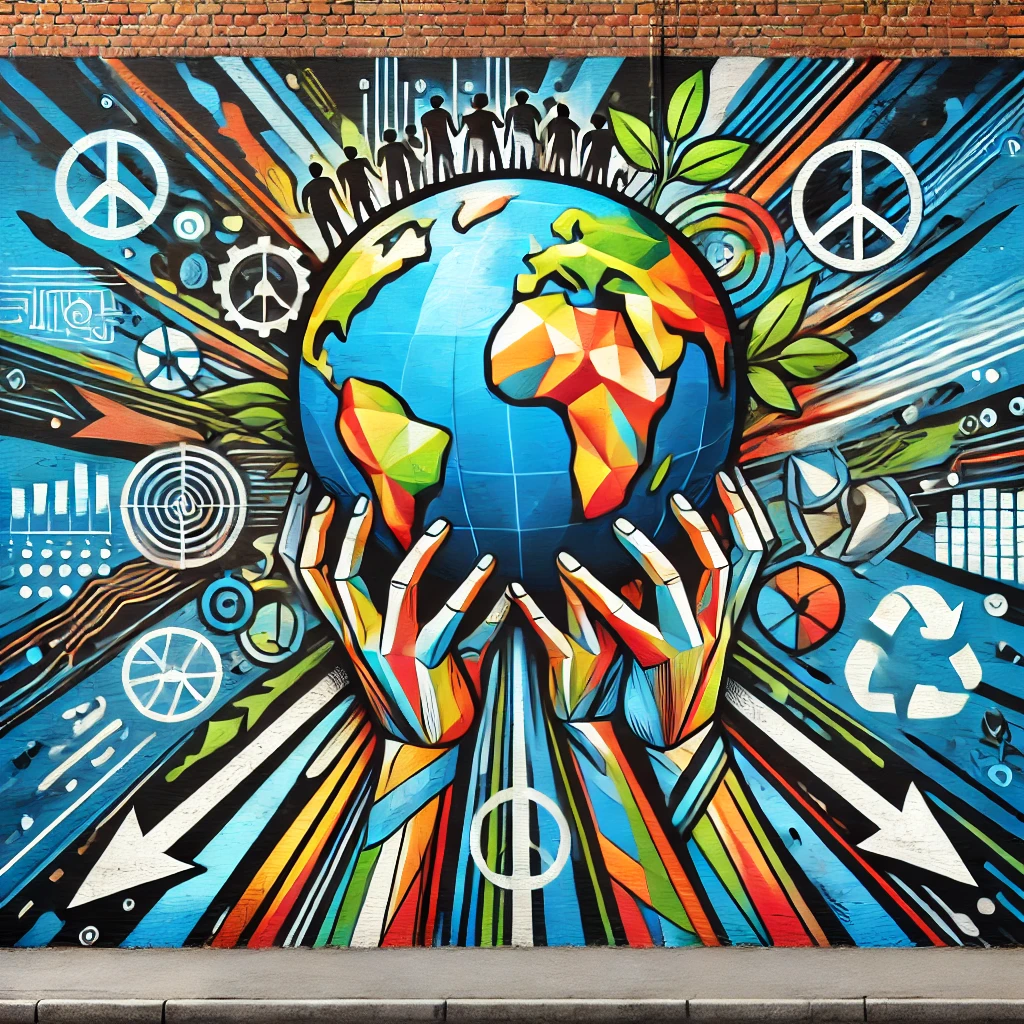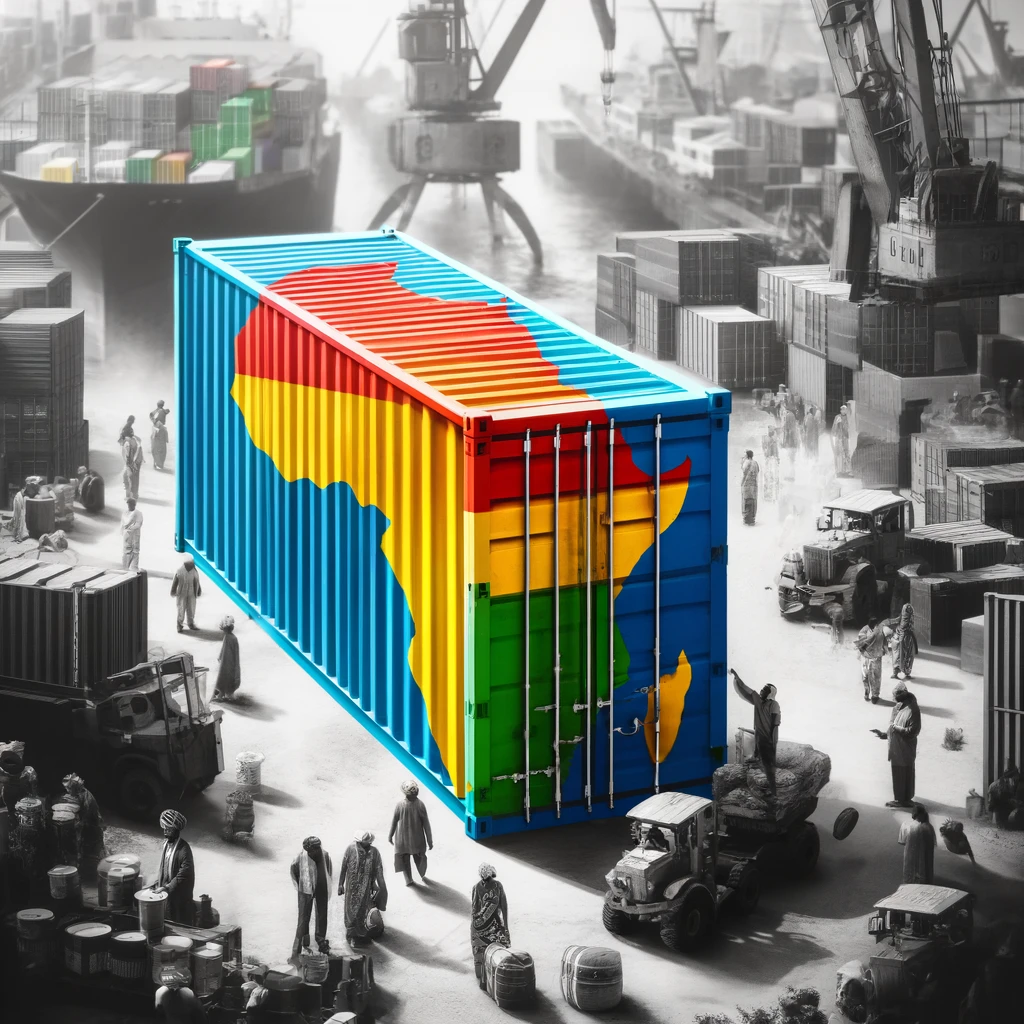
The UN Summit of the Future, held in September 2024, marked a pivotal moment in the international community’s efforts to address the most pressing global challenges of the 21st century. By adopting the Pact for the Future, this summit aimed to revitalize multilateralism, reform key global institutions, and set a transformative agenda for peace, security, sustainable development, and technological governance. The summit, framed as a once-in-a-generation opportunity, resulted in three critical agreements—the Pact for the Future, the Global Digital Compact, and the Declaration on Future Generations—each designed to address specific facets of international cooperation, governance, and sustainability.
Key Outcomes of the Summit
1. Pact for the Future
The Pact for the Future is the cornerstone of the summit’s achievements. It provides a broad framework aimed at resolving global governance issues, strengthening international peace, and accelerating progress on sustainable development goals (SDGs). The pact emphasises:
- Turbocharging the SDGs: Countries recommitted to achieving the Sustainable Development Goals, with a particular focus on addressing the most critical targets, such as poverty eradication, climate action, and inequalities, which have seen inadequate progress.
- Peace and Security Reforms: A major component of the pact is the promise to reform the UN Security Council and other peacekeeping institutions to make them more reflective of the current geopolitical realities. There is a focus on ensuring better representation of historically underrepresented regions, such as Africa and Latin America, in the Security Council.
- Climate Action: The pact also ties into the Paris Agreement by pushing for a faster transition to renewable energy, ensuring that the global climate agenda moves forward amid increasing environmental risks.
2. Global Digital Compact
The Global Digital Compact is the first globally agreed framework for the governance of digital technologies, particularly artificial intelligence (AI). It aims to ensure that digital tools are used responsibly, with emphasis on:
- Bridging the digital divide: There is an urgent need to close gaps in digital access between developed and developing countries to foster inclusive development.
- Global AI Governance: The compact calls for a Scientific Panel on AI to monitor developments in artificial intelligence and address ethical concerns. This includes preventing AI misuse in areas such as surveillance, deep fakes, and autonomous weapons.
3. Declaration on Future Generations
The Declaration on Future Generations is perhaps the most forward-looking outcome of the summit. It commits nations to consider the long-term consequences of today’s decisions on future generations, addressing issues like:
- Environmental protection: With climate change continuing to threaten global sustainability, the declaration underscores the importance of safeguarding ecosystems for future generations.
- Intergenerational Equity: It promotes the inclusion of younger generations in decision-making processes at both the national and international levels, ensuring that their voices are heard when crafting policies that will impact them directly.
Actionable Steps for States
The real success of the summit lies not in the agreements but in their implementation. States must take concrete steps to turn these declarations into reality:
- Reform Global Governance Structures: Countries, particularly the major powers, need to support the reform of institutions such as the UN Security Council. Greater representation for the Global South—especially Africa, Latin America, and Asia—is necessary to restore credibility and fairness in global decision-making processes.
- Invest in Sustainable Development: States must significantly increase their financial commitments to the SDGs, particularly through innovative financing mechanisms that can address the $4 trillion gap hindering their achievement. Development finance must be scaled up to support the most vulnerable nations.
- Promote Digital Inclusion and Regulation: Governments must foster equitable digital access, particularly in regions with low connectivity, such as parts of Africa and South Asia. Alongside promoting digital literacy, states must collaborate on the global governance of AI and ensure it is aligned with human rights.
- Strengthen Partnerships with Civil Society: The summit emphasized the role of civil society, the private sector, and youth in global governance. States should actively engage with these groups at national and global levels to ensure that governance is participatory, inclusive, and reflective of diverse perspectives.
Actionable Steps for Individuals
While governments and international organizations bear much of the responsibility for implementing the outcomes of the UN Summit of the Future, individuals also have a critical role in ensuring these ambitious goals are met. By taking action at personal, community, and national levels, individuals can help foster global cooperation, sustainability, and technological responsibility.
1. Promote Sustainable Practices in Daily Life
At the core of the Pact for the Future is the acceleration of the Sustainable Development Goals (SDGs) and the Paris Agreement. Individuals can contribute by:
- Reducing energy consumption: Use energy-efficient appliances, adopt renewable energy solutions where possible (e.g., installing solar panels), and make conscious efforts to reduce carbon footprints through energy conservation.
- Sustainable consumption: Support businesses that prioritize sustainable and ethical practices. Opt for products with minimal environmental impact, such as those using recycled materials or eco-friendly packaging.
- Waste reduction: Minimize waste by reusing, recycling, and reducing single-use plastic. Participate in community recycling programs and promote circular economy principles.
2. Support Global Governance and Inclusivity
The summit emphasized global governance reform and the inclusion of youth and marginalized communities in decision-making. Individuals can advocate for inclusivity and representation by:
- Engaging in civic participation: Participate in local and national elections to support leaders and policies that promote inclusive global governance and multilateralism.
- Amplifying youth voices: Support and engage with youth-led organizations focused on climate action, social justice, and innovation. Encourage educational and mentorship opportunities for younger generations to be part of the global policy dialogue.
- Promoting digital inclusivity: Advocate for equitable access to technology, particularly in underserved communities. Donating time or resources to support digital literacy programs helps bridge the digital divide, a key goal of the Global Digital Compact.
3. Advocate for Ethical Technology Use
The Global Digital Compact emphasizes the responsible use of artificial intelligence (AI) and digital technologies. Individuals can contribute by:
- Practicing digital responsibility: Ensure that personal and professional use of technology adheres to ethical standards. Be mindful of data privacy and the impact of technology on communities.
- Supporting AI governance: Advocate for ethical AI use by supporting policies and companies that prioritize transparency, accountability, and equitable benefits from AI technologies. Join public discussions and educational forums on AI ethics and governance.
4. Engage in Climate and Environmental Activism
Climate change is a central focus of the summit’s outcomes. Individuals can become part of the solution by:
- Participating in climate movements: Support local and international climate initiatives by joining peaceful protests, signing petitions, or working with environmental organizations.
- Community-based conservation: Get involved in local environmental conservation efforts, such as tree planting, beach clean-ups, and biodiversity preservation.
- Sustainable transportation: Reduce reliance on fossil fuels by using public transportation, cycling, or walking when possible. Advocating for clean energy policies at local levels is also essential.
5. Foster Global Peace and Security
The Pact for the Future calls for the protection of civilians and conflict prevention. Individuals can contribute to peacebuilding efforts by:
- Promoting dialogue and understanding: Support intercultural and interfaith initiatives that foster understanding and reduce tensions between different groups. Participate in local peacebuilding programs.
- Raising awareness: Spread information on the importance of peace and security initiatives. Support NGOs and grassroots movements that focus on conflict resolution and the protection of human rights.
Focus on Africa
The outcomes of the Summit of the Future hold particular importance for Africa, a continent facing both unique challenges and opportunities in the global order. African nations were instrumental in advocating for the reforms of the UN Security Council, aiming to gain a more representative voice in international decision-making.
This is critical for addressing issues that disproportionately affect Africa, such as climate change, resource governance, and economic inequality.
Key Priorities for Africa:
- Debt Relief and Financial Reforms: Many African countries are trapped in cycles of debt that hinder their ability to invest in sustainable development. The summit highlighted the need for a global financial safety net that can alleviate this burden, allowing African nations to redirect resources towards social and economic development.
- Climate Action and Adaptation: Africa is highly vulnerable to climate change yet contributes the least to global emissions. African leaders at the summit stressed the need for more climate financing to support both mitigation and adaptation efforts, with a particular focus on expanding renewable energy infrastructure.
- Youth Inclusion in Governance: Africa has the world’s youngest population, and the summit’s emphasis on youth inclusion aligns with ongoing efforts within the continent to involve young people in decision-making processes. This demographic represents both a challenge and an opportunity, and African states must harness the potential of their youth to drive innovation, entrepreneurship, and political participation.
- Technological Leapfrogging: The Global Digital Compact offers Africa an opportunity to leapfrog traditional development stages by embracing digital technologies and AI. However, this requires substantial investments in digital infrastructure, education, and innovation to ensure that African countries are not left behind in the global digital transformation.
Collective Action for Global Success
The UN Summit of the Future has laid down a transformative vision for global governance, peace, sustainability, and technology regulation. However, the onus is now on states to translate the promises of the Pact for the Future, the Global Digital Compact, and the Declaration on Future Generations into concrete actions. For Africa, the summit presents a critical opportunity to advocate for reforms that will empower the continent to meet its development challenges and contribute to global peace and prosperity. However, success will require sustained efforts, political will, and cooperation at both regional and global levels. States must now act decisively to ensure that the future envisioned at this summit becomes a reality.
Sources and References:
UN News – “World Leaders Adopt Pivotal UN Pact for the Future”
This article provides a comprehensive overview of the outcomes of the 2024 Summit of the Future, particularly the Pact for the Future and the focus on sustainable development, peace, and digital governance.
Source: UN News, September 22, 2024.
Link: UN News UN News
UN Press Coverage – “Three Landmark Agreements ‘a Step-Change’ Towards Effective Multilateralism”
This official UN press release highlights the significance of the three key agreements: Pact for the Future, Global Digital Compact, and the Declaration on Future Generations. It details reforms in the UN Security Council and the international financial architecture.
Source: United Nations, September 22, 2024.
Link: UN Press
World Council of Churches Statement – “WCC Statement on UN Summit of the Future Outcome”
The WCC emphasizes the ethical dimensions of the summit outcomes, including climate justice, peace, and human rights. The article underscores the importance of faith-based partnerships in implementing the agreements.
Source: World Council of Churches, September 22, 2024.
Link: World Council of Churches
UN News – “Summit of the Future: Protect Future Generations from Global Decisions Made Today”
This source covers the long-term implications of the Declaration on Future Generations, focusing on intergenerational equity and environmental protection.
Source: UN News, September 16, 2024.
Link: UN News
UN Secretary-General António Guterres Speech – “UN Summit of the Future Closing Remarks”
Guterres emphasizes the urgent need for multilateral reforms and action on peace, security, and climate change, while urging states to implement summit agreements.
Source: UN, September 22, 2024.
Link: UN News UN Press
World Economic Forum – “The Global Digital Compact: How to Bridge the Digital Divide”
A summary of the Global Digital Compact, focusing on its goals to bridge digital divides, govern AI, and ensure that technology benefits everyone.
Source: World Economic Forum, September 2024.
Link: UN News
UN Sustainable Development Goals Progress Report 2024
This report provides data and insights on the progress (or lack thereof) towards achieving the Sustainable Development Goals (SDGs), which are central to the Pact for the Future.
Source: United Nations, 2024.
Link: UN News
African Union Statement – “Africa’s Priorities for Global Governance Reform at the UN Summit of the Future”
A detailed document outlining Africa’s position on reforming global governance structures, particularly regarding the UN Security Council and financial institutions.
Source: African Union, September 2024.
Link: UN News UN Press
UN Report – “Financing for Development: Towards a Global Financial Safety Net”
This report delves into the summit’s focus on creating a more representative and effective global financial architecture to address the challenges faced by developing nations, particularly in Africa.
Source: United Nations, September 2024.
Link: UN Press UN News
World Bank – “Climate Adaptation Financing in Africa: Opportunities and Challenges”
A World Bank report analyzing the state of climate adaptation financing in Africa, a key issue raised during the summit with regard to Africa’s vulnerability to climate change.
Source: World Bank, 2024.
Link: UN News


